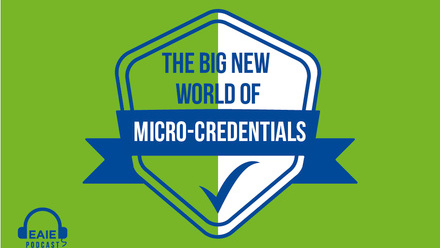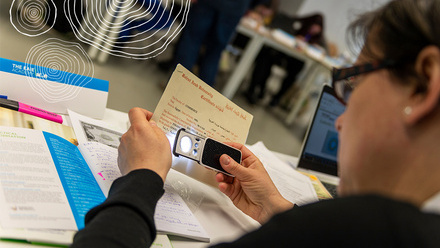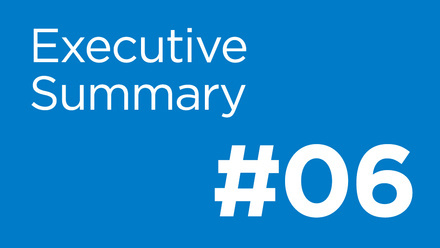Micro-credentials: an evolving discourse

Recently in 2023, we witnessed another important step toward the modularisation of the European education landscape. From 21 to 23 March 2023, the Baden-Wuerttemberg Cooperative State University (DHBW), the Universitat Oberta de Catalunya (UOC), and the Knowledge Innovation Centre (KIC) hosted the International Micro-Credentials Summit in Barcelona. It offered more than 100 international policymakers, educational leaders, innovators, CEOs of EdTech companies, and stakeholders in continuous and higher education a platform to discuss the enormous potential of micro-credentials (MCs).
What are micro-credentials?
MCs are short, thematically-focused courses with a final, transparent examination performance. Up to now, there exists no generally accepted definition of MCs. In 2022, the European Council published a Recommendation on a European approach to micro-credentials for lifelong learning and employability, which urges EU Member States to adopt a common approach to MCs and adhere to a common definition. In this document, the Council defined MCs as:
"[…] the record of the learning outcomes that a learner has acquired following a small volume of learning. These learning outcomes will have been assessed against transparent and clearly defined criteria. Learning experiences leading to micro-credentials are designed to provide the learner with specific knowledge, skills and competencies that respond to societal, personal, cultural or labour market needs. Micro-credentials are owned by the learner, can be shared and are portable. They may be stand-alone or combined into larger credentials. They are underpinned by quality assurance following agreed standards in the relevant sector or area of activity."
This new learning format has the potential to increase the flexibility of educational systems, allowing institutions to adapt their curricula to rapidly-changing labour market needs. In opening up new learning and career pathways, MCs can cater to urgent societal and economic needs, and could even tackle the environmental challenges of the future.
European discourses on micro-credentials
In recent years, the concept of MCs has been in the limelight of European and national policy discourses around education and lifelong learning. The enormous interest in MCs and the recent rise in implementing MCs into HEIs’ curricula epitomises the continuing trend toward modularisation in the European Education Area (EEA), which has already been one of the objectives of the Bologna Process. MCs, it seems, could finally make this goal a reality.
The adoption of micro-credentials as a new learning format has only lately gained momentum in Europe
However, the adoption of micro-credentials as a new learning format has only lately gained momentum in Europe. The Micro-Credentials Summit with its international audience has once again demonstrated that the European education sector is lagging behind. In the past, European policymakers and institutional leaders have often been hesitant about fully embracing a long-term micro-credentialing strategy. Some countries (including Canada, the USA and Australia), in contrast, are far ahead of European initiatives. In these countries, market-driven innovation, rapid adaptations to changing labour market needs, fast developments in digital tools, and extensive use of data analytics have shaped the ever-evolving micro-credential landscapes.
Nevertheless, it also became apparent that the European approach to micro-credentials has its own benefits. European HEIs place greater focus on quality assurance in order to uphold its rigorous scientific standards, counteract a fragmentation of the education market, and secure the public right to high-quality education. Among the remedial actions to close the gap between Europe and the micro-credentialing ‘trailblazers’, many participants at the summit suggested closer collaboration and regular exchanges across geographic borders. This will eventually be of great benefit to all those currently involved in planning, designing, implementing, and marketing micro-credentials.
This necessary ‘team spirit’ is also reflected in the March 2023 International Micro-Credentials Summit Declaration. The authors emphasise the importance of cooperation partnerships. They summon European policymakers and institutional leaders to follow a clear, coherent and inclusive micro-credentialing strategy, foster cross-sectoral cooperation, and adopt digital credentials and recognition technologies.
What’s next?
To continuously promote international collaboration in the field of micro-credentialing, the International Micro-Credential Summit is conceived as a series of summits. In fact, the event in Barcelona was already the second summit, following the MicroHE MasterClass in Bled, Slovenia. Inspired by the success of these last two events, the organisers decided to convene a third summit next year. The Baden-Wuerttemberg Cooperative State University (in German Duale Hochschule Baden-Württemberg, hence DHBW), one of the organisers of the summit in Barcelona, will then be the host, having been generously offered funding by the German Academic Exchange Service (DAAD). It is very likely that the venue will be in Stuttgart. The organisers plan to convene a national symposium directly after the summit (following the example of the Barcelona summit), allowing policymakers and institutional leaders in Germany to discuss the future of Germany’s educational system.
The DHBW’s role in shaping the discourse
The DHBW was launched as an innovative new project in the Federal State of Baden-Wuerttemberg in the Southwest of Germany. It was designed to provide students with a post-secondary education based on a unique combination of theoretical studies and on-the-job training. UCE students alternate between academic and professional training, giving them the opportunity to immediately apply concepts learned in the classroom to their workplace and in return bring new ideas from their training companies to the university.
The DHBW has made significant contributions to the EU Micro-Credentials Strategy and the Europass Digital Credentials with the EU projects MicroHE, OEPass and ECCOE. In the EU project MicroHE, a standardised ‘credit supplement’ was developed along the lines of the European Diploma Supplement, which can be used to document learning achievements for partial qualifications. In DHBW’s current research projects (2021–2025) on the topic of micro-credentialing –MicroCredX, LCAMP, EdCoN ECC7 and DigiProf – topics such as electronic forms of examination and tools and services for learners to simulate learning pathways are being researched and operationalised at universities.
Recently, the DHBW, together with eight other dual universities in Europe, has successfully applied for funding as a European University. Together, the partner universities want to establish the first dual European University alliance under the name ‘EU4DUAL’. This alliance will promote the dual study programme, intensify international exchange, and help meet Europe's major challenges through joint projects in teaching, research, continuing education and transfer. Besides joint masters and doctoral programmes, EU4DUAL will also establish a micro-credentials platform, offering micro-credentials to the students of all nine institutions. Dr Christopher Reichstein, currently advisor to the dean of the DHBW Heidenheim, will be responsible for EU4DUAL’s micro-credentialing strategy. Moreover, he will plan and organise the next International Micro-Credentials Summit in Germany.
Micro-credentials hold great potential for higher education. They can provide students with a flexible and convenient way to enhance their skills and competencies. Micro-credentials can also be a great opportunity for higher education institutions to offer specialised, short-term educational offers that meet the needs of a fast-changing labour market. The International Micro-Credentials Summit in Barcelona was an important step toward such flexible and responsive educational systems in Europe. Let us continue on this path and shape the future of education together!






